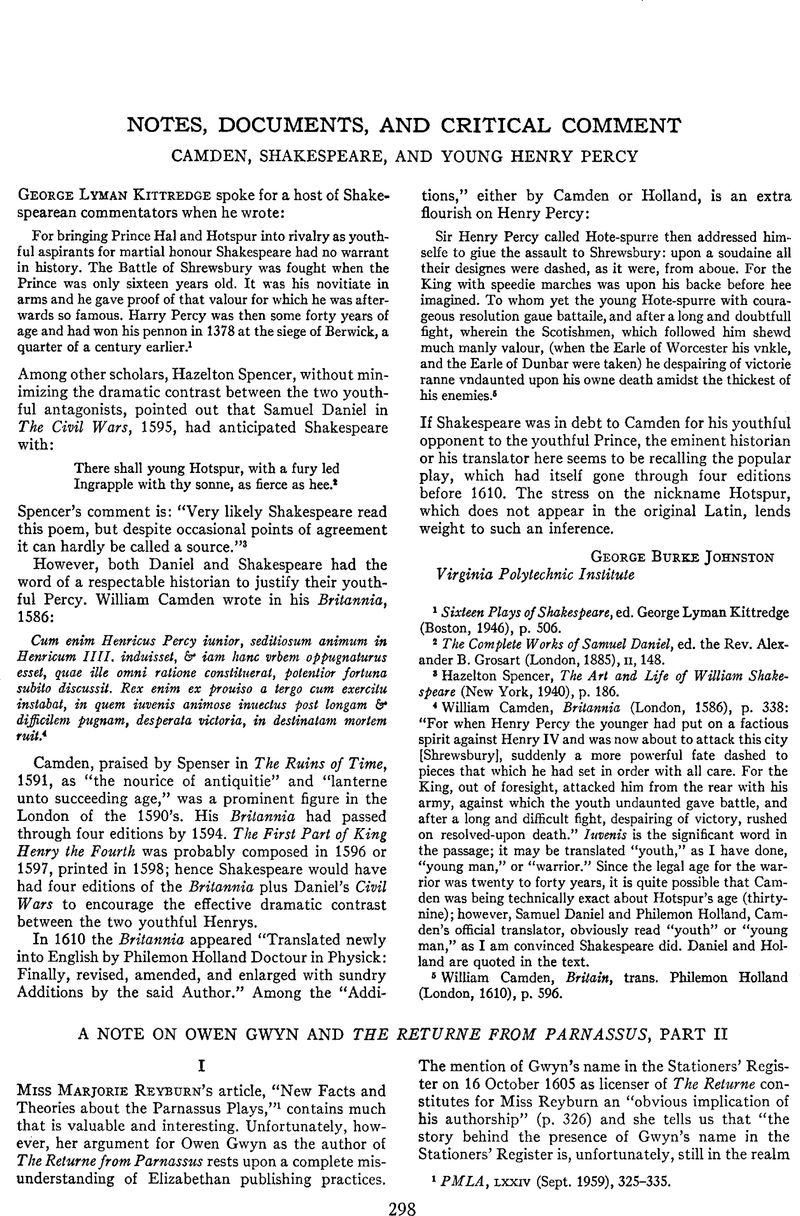No CrossRef data available.
Article contents
Camden, Shakespeare, and Young Henry Percy
Published online by Cambridge University Press: 02 December 2020
Abstract

- Type
- Notes, Documents, and Critical Comment
- Information
- Copyright
- Copyright © Modern Language Association of America, 1961
References
Note 1 in page 298 Sixteen Plays of Shakespeare, ed. George Lyman Kittredge (Boston, 1946), p. 506.
Note 2 in page 298 The Complete Works of Samuel Daniel, ed. the Rev. Alexander B. Grosart (London, 1885), ii, 148.
Note 3 in page 298 Hazelton Spencer, The Art and Life of William Shakespeare (New York, 1940), p. 186.
Note 4 in page 298 William Camden, Britannia (London, 1586), p. 338: “For when Henry Percy the younger had put on a factious spirit against Henry IV and was now about to attack this city [Shrewsbury], suddenly a more powerful fate dashed to pieces that which he had set in order with all care. For the King, out of foresight, attacked him from the rear with his army, against which the youth undaunted gave battle, and after a long and difficult fight, despairing of victory, rushed on resolved-upon death.” Iuvenis is the significant word in the passage; it may be translated “youth,” as I have done, “young man,” or “warrior.” Since the legal age for the warrior was twenty to forty years, it is quite possible that Camden was being technically exact about Hotspur's age (thirty-nine); however, Samuel Daniel and Philemon Holland, Camden's official translator, obviously read “youth” or “young man,” as I am convinced Shakespeare did. Daniel and Holland are quoted in the text.
Note 5 in page 298 William Camden, Britain, trans. Philemon Holland (London, 1610), p. 596.


